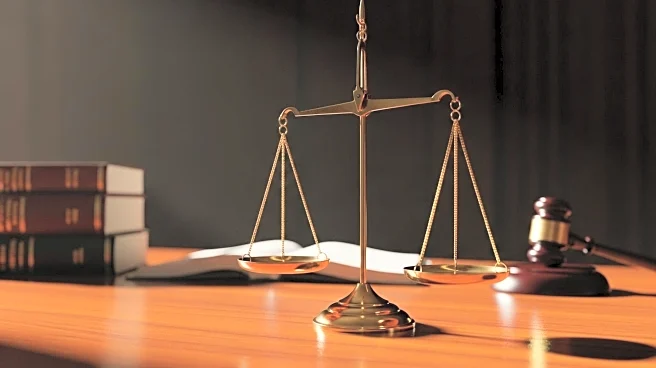What's Happening?
The Trump administration has faced numerous lawsuits challenging its interpretations of federal laws, with lower courts often ruling against it. However, the U.S. Supreme Court has allowed the administration to continue implementing its programs, not based on the merits of the cases, but due to procedural rules that denied plaintiffs relief. This has been facilitated through the court's 'shadow docket,' which bypasses full briefing and oral argument. These procedural victories have raised questions about the Supreme Court's perceived legitimacy and neutrality, as they enable President Trump to continue his initiatives without clear judicial endorsement of their legality.
Why It's Important?
The Supreme Court's procedural rulings in favor of the Trump administration have significant implications for the balance of power between the executive branch and federal agencies. By allowing procedural victories, the court may inadvertently increase presidential power, potentially undermining the checks and balances designed to limit executive control over independent agencies. This situation could lead to a shift in how federal laws are interpreted and enforced, affecting public policy and governance. The court's decisions also impact the perception of its role as a neutral arbiter, which is crucial for maintaining public trust in the judiciary.
What's Next?
Several cases involving procedural rulings favorable to President Trump are expected to return to the Supreme Court. The justices will need to address the substantive legal issues rather than relying on procedural grounds if they wish to uphold the administration's actions. Key topics such as birthright citizenship and tariffs are likely to be at the forefront of these discussions. The outcomes of these cases could set important precedents for executive power and judicial oversight, influencing future administrations and legal interpretations.
Beyond the Headlines
The Supreme Court's approach to these cases highlights broader ethical and legal questions about the role of procedural rules in judicial decision-making. The reliance on procedural grounds rather than substantive legal analysis may reflect strategic considerations within the court, potentially affecting its long-term credibility. Additionally, these decisions could influence how future administrations approach legal challenges, prioritizing procedural tactics over substantive legal arguments.









